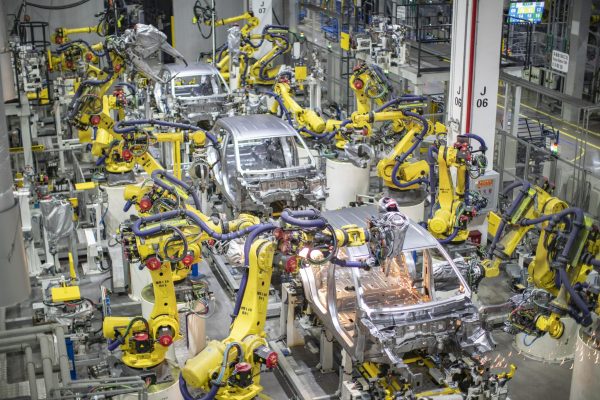Our Location
The automotive industry has always relied on innovation and technology. CNC machining for automotive applications has been a driving force behind many manufacturing advancements. Henry Ford revolutionized automaking in 1913 with the first moving assembly line, paving the way for mass-produced vehicles. Precision auto parts continue to be a key goal. Recent advancements in design, robotics, and manufacturing have led to increased automation of automotive machining, resulting in vehicle design and performance improvements. CNC machining plays a crucial role in transforming the industry.

*CNC milling
*CNC turning
*CNC drilling
*CNC thread machining
*Surface grinding
Metal such as
*Steel
*Stainless steel,
*Aluminum
*Titanium
*Copper
*brass
*Zinc
plastics like
*Nylon
*PVC
* PEEK
The surface treatment includes
*Electroplating
*Sandblasting
*Polishing
*Anodized
*electrophoresis
*chromate,
*powder spraying
*painting
We offer a range of colors, including
*White
*black
*Red
*Silver
*Blue,natural, and green. Additionally, we can provide various other colors as per customer requirements.
CNC machining is increasingly popular in the automotive industry. It offers many benefits, including speed, automation, and repeatability.
Our CNC machining factory is fully equipped to handle any quantity required with fast production speed, making it an ideal option for most plans. Our manufacturing process incorporates automation to eliminate labor-intensive tasks. Our skilled mechanics can also optimize tools or machines, choose from various materials, and adjust part tolerances to produce components faster and more efficiently.
CNC Machining offers the advantage of automation, which results in faster production times compared to manual processes and a more streamlined automotive manufacturing process. If you manufacture a part on a CNC Machine, robotic arms can help to remove the finished part. It allows workers to dedicate more time to design and innovation tasks, which is highly beneficial.
Automotive CNC machining is a computer-controlled process that offers a guarantee of repeatability. It is a critical aspect in any industrial-grade production setting. Consistency of parts is crucial in the automotive industry, ensuring they remain consistent from batch to batch. It guarantees that every CNC car produced meets the same standard.
To meet the strict manufacturing standards required by industry regulations, modern automotive applications require a complex process that ensures strict tolerances where they are most needed. CNC machining is the only process that can produce such complex and powerful components while adhering to market expectations and safety guidelines. Therefore, it is particularly beneficial for modern automotive applications.
CNC machining is a precise process that uses various materials to create automobile parts. This option provides quick samples of lighting, interior details, design features, and covers for testing and refining before being sent to the manufacturing shop. It’s an efficient way for design teams to enhance product performance.
Although additive manufacturing is better suited for customization, CNC machining has the advantage of producing customized parts in short lead times, either as one-offs or in small production volumes for the automotive sector.

The automotive industry heavily relies on CNC milling machines for prototyping and production. These machines can transform extruded metal into various automobile parts such as cylinder blocks, gearboxes, valves, and shafts. Similarly, CNC technology can process plastics into components such as dashboards and gas meters. Therefore, it is evident that numerical control technology and processing were the foundation of the automobile industry.

CNC machining is a subtractive process where the final product is achieved by removing parts of the workpiece. On the other hand, 3D printing is an additive manufacturing process that builds the final product by introducing successive layers of materials. Although both processes are highly accurate, 3D printing allows for more customization. CNC machining is compatible with a wider range of materials than 3D printing.
CNC machining technology enables auto manufacturers to produce intricate parts with minimal setup time and reduced material waste, achieving high accuracy and repeatability and ensuring consistent quality across large production runs.
CNC machining is a cost-effective and flexible solution for producing automotive parts with tight tolerances and complex geometries.
Automotive CNC machining relies on quality control measures to ensure the accuracy and precision of the manufactured parts. These measures include equipment maintenance, raw material inspection, in-process measurements, final testing, adherence to standards like ISO 9001, and monitoring systems. By using sensors to detect errors, it becomes possible to make adjustments and maintain the desired level of quality.
In the automotive manufacturing industry, CNC machines are widely used to create high-quality vehicle parts and components efficiently. CNC lathes offer precise turning capabilities, while CNC milling machines have capable drilling powers. Other advanced tools, such as plasma and laser cutters, are essential in modern car production processes. All of these specialized machines are crucial in the manufacturing of superior automobile parts and components.
Various parts in the automotive industry require different materials, ranging from metal to plastic. One of the most crucial applications of CNC machining in this industry is the production of cylinder blocks and heads. Aluminum is preferred for this purpose due to its high conductivity, which allows the heads to expel significant amounts of heat from the combustion chamber.
We have over ten years of experience producing automotive parts with customers worldwide. Our parts have been exported to many countries, establishing an excellent reputation. Please visit our website at www.enzemfg.com to learn more about us.
Contact us at admin@enze-mfg.com, we’ll give you feedback immediately.

